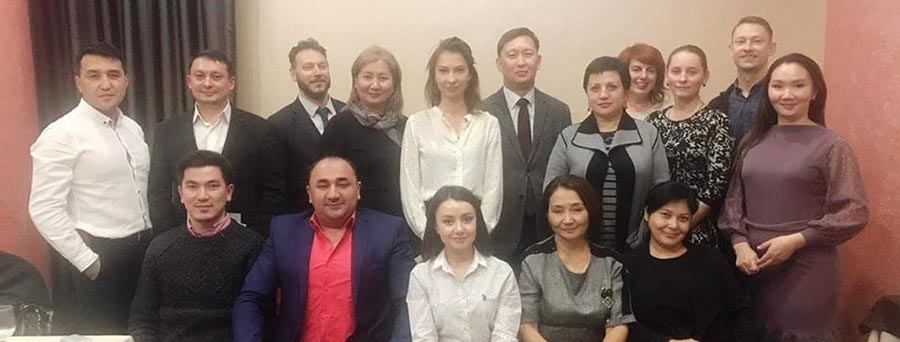IBAHRI activities in Kazakhstan in 2018
Monday 20 January 2020
November 2018:
Article 9: Kazakh lawyers train in the protection of liberty and security
Article 9 of the ICCPR on the right to liberty and security was the focus of a training conducted by the IBAHRI in November 2018. Lawyers were also given the tools to share what they learnt with their colleagues.
Article 9 of the United Nation’s International Covenant on Civil and Political Rights (ICCPR) protects the right of everyone to liberty and security. This means that ‘no one shall be subjected to arbitrary arrest or detention.’1 The ICCPR is legally binding and was ratified by Kazakhstan in 2006.
In 2016, the United Nations’ Human Rights Committee – the body that monitors States’ implementation of the ICCPR – finalised its concluding observations on Kazakhstan’s second periodic review into the country’s implementation. Within the report, the Committee advised the State that it must bring its national legislation in line with Article 9.3
In response to continued allegations of violations of Article 9 in the country, the International Bar Association’s Human Rights Institute (IBAHRI) has held a training-of-trainers workshop for lawyers on the matter. The training, which took place in November 2018, provided lawyers in-depth knowledge and skills in the protection against violations and the means to disseminate their learning with others in the profession. The regional trainings will follow in 2019.

July 2018:
The IBAHRI submits letter to the President of Kazakhstan regarding independence of the legal profession
In the letter, the IBAHRI expresses grave concern over the Law on Advocates’ Activities and Legal Aid, which could limit defence lawyers’ access to information and give the Ministry of Justice increased influence over admittance to the legal profession.
In June 2018, the Senate of the Republic of Kazakhstan adopted the Law on Advocates’ Activities and Legal Aid, which is believed to give the Ministry of Justice effective control over the national bar association and professional qualification procedure. The International Bar Association’s Human Rights Institute (IBAHRI) has monitored and conducted advocacy around the development of this law since its first drafting, including supporting Kazakhstani lawyers advocate internationally on its preliminary pitfalls.3
The IBA wrote to the President of the Republic of Kazakhstan, Mr Nursultan Nazarbayev, in July 2018 to urge the President not to sign the legislation into law.
Under the changes, lawyers would be admitted to the profession through qualifying commissions, which would be majority governed by members approved by the Ministry of Justice. Such a reform would risk unacceptable crossover between the Executive and the legal profession, contrary to the principle of separation of powers. This threatens the right of lawyers under Principle 24 of the United Nations Basic Principles on the Role of Lawyers, to join self-governing bar associations without external interference.
Article 35 of the Law on Advocates stipulates that lawyers may be denied access to certain types of information. It has been reported that defence lawyers will bear the brunt of this. Inequal treatment of parties in legal proceedings would be in contravention of Article 14 of the International Covenant on Civil and Political Rights, to which Kazakhstan is a party.
The President must adhere to his obligations under international law regarding the legal profession when making his decision.
1ICCPR, Art 9(1).
2UNHRC, ‘Concluding Observations’ (9 August 2016) UN Doc CCPR/C/KAZ/CO/2 [26].
3www.ibanet.org/Article/NewDetail?ArticleUid=812dd9cb-fb4f-440f-bf4a-13b0ff6229c7